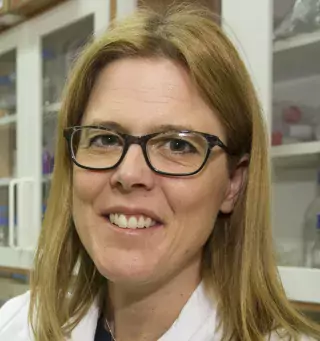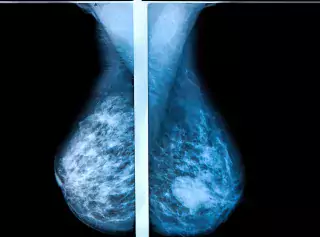News archive
On this page you can search for older news. Choose a topic, type of news or enter your own keyword to filter out news.
View compact

Antibiotics use, particularly antibiotics with greater spectrum of microbial coverage, may be associated with an increased risk of new-onset inflammatory bowel disease (IBD) and its subtypes ulcerative colitis and Crohn’s disease. That is according to a study by researchers at Karolinska Institutet in Sweden and Harvard Medical School in the U.S., published in the journal The Lancet Gastroenterology & Hepatology. The association remained when patients were compared with their siblings.
News
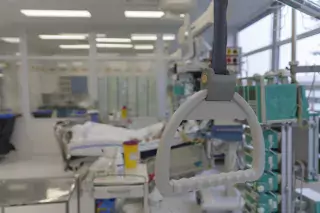
The drug tocilizumab, which is used in the treatment of various forms of arthritis, is associated with shorter time on ventilation and shorter hospital stays for patients with severe COVID-19, a new study from Karolinska Institutet and Karolinska University Hospital published in The Journal of Internal Medicine reports.
News
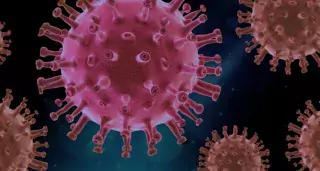
A drug against rheumatoid arthritis called baricitinib could potentially be repurposed to treat patients with COVID-19, according to a study conducted by an international research team including researchers at Karolinska Institutet in Sweden. The findings, published in the journal EMBO Molecular Medicine, represent an example of how artificial intelligence (AI)-algorithms could help identify existing drugs as potential therapies against as new illnesses.
News

The anaesthetic drug ketamine has been shown, in low doses, to have a rapid effect on difficult-to-treat depression. Researchers at Karolinska Institutet now report that they have identified a key target for the drug: specific serotonin receptors in the brain. Their findings, which are published in Translational Psychiatry, give hope of new, effective antidepressants.
News

Researchers at Karolinska Institutet are coordinating a recently initiated multi-national clinical trial that will evaluate the effect of hyperbaric oxygen treatment (HBO) in severe cases of COVID-19. A total of 200 adults admitted to hospital with moderately severe COVID-19 pneumonia will be recruited. The trial could start as early as next week at a hospital in Region Blekinge, Sweden.
News

EU-financed Innovative Medicines Initiative (IMI) has boosted funding for research on diagnostics, medicines and vaccines against the new coronavirus SARS-CoV-2. Ali Mirazimi, researcher at Karolinska Institutet and Sweden’s National Veterinary Institute (SVA), coordinates one of eight projects provisionally selected among 144 applicants.
News

Millions of people around the world use acid suppressants called proton pump inhibitors for conditions like heartburn, gastritis and stomach ulcers. Researchers at Karolinska Institutet in Sweden now report how the long-term use of these drugs could increase the risk of developing dementia. Their results are published in the journal Alzheimer’s & Dementia.
News

In severe cases of COVID-19, a massive release of the endogenous protein HMGB1 in the lungs may contribute to pulmonary inflammation and tissue damage, according to a recent review article published in the journal Molecular Medicine. The researchers conclude that the inflammation could hypothetically be treated with an HMGB1 inhibitor.
News

Sweden can contribute solid data to Solidarity, a global study run by the WHO to test the efficacy and safety of drugs considered for use in the treatment of COVID-19, says Soo Aleman, docent and consultant, and coordinator of the Swedish arm of the study.
News
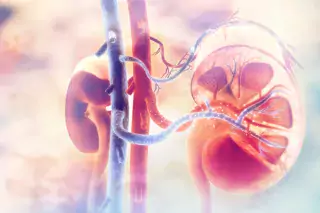
Use of sodium glucose cotransporter 2 (SGLT2) inhibitors to treat type 2 diabetes may help to lower the risk of serious kidney problems, according to a Scandinavian study led by researchers at Karolinska Institutet. The findings, now published in the journal The BMJ, provide support for the use of SGLT2 inhibitors in a broad range of patients with type 2 diabetes, according to the researchers.
News

A drug that lowers levels of the male hormone testosterone in the body reduces the risk of men with pedophilic disorder sexually abusing children, a study from Karolinska Institutet published in the journal JAMA Psychiatry shows.
News
Sten Orrenius, Professor Emeritus at Karolinska Institutet, died on April 27, 2020. Dr. Orrenius was an internationally renowned and highly respected toxicologist because of his groundbreaking research in drug metabolism, the role of disruption of calcium homeostasis in cellular toxicity and mechanisms of programmed cell death (apoptosis).
News

We have lost our former director, colleague and friend, Professor emeritus Folke Sjöqvist, who passed away peacefully on 30 March at the age of 86 after a protracted illness. He is sorely missed by his wife Margareta and four children and their families, as well as friends and colleagues in Sweden and around the world.
News
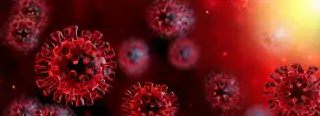
A drug already tested against lung disease could potentially inhibit COVID-19 by reducing the coronavirus load that enters the lungs and other organs. That is according to a study in human cell cultures and organoids by researchers at Karolinska Institutet in Sweden and the University of British Columbia (UBC) in Canada, published in the journal Cell.
News
Among adults with chronic viral hepatitis at high risk of liver cancer, those who took low-dose aspirin long-term were less likely to develop liver cancer or to die from liver-related causes. The findings come from a study published in the New England Journal of Medicine and conducted by a team led by investigators at Karolinska Institutet and Örebro University Hospital in Sweden and Massachusetts General Hospital in the U.S.
News
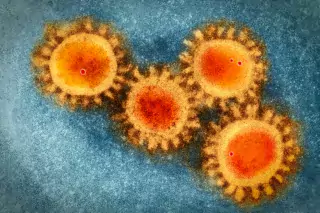
Professor Ali Mirazimi at Karolinska Institutet is part of a consortium that has received 1 million Canadian dollars (almost 7 million kronor) to try to develop a drug candidate against COVID-19. Mirazimi will assist with in vitro and in vivo infection models for SARS-CoV-2. The project is a collaboration with Canadian and Chinese researchers.
News
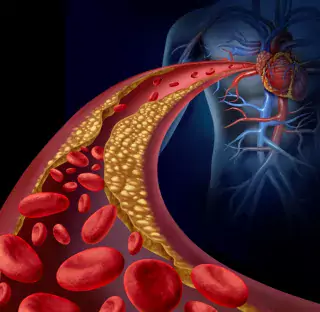
The financial burden on health systems would drastically increase if new European expert guidelines for cholesterol-lowering treatment were implemented, according to a new simulation study by researchers at Karolinska Institutet in Sweden, published in the European Heart Journal. The findings highlight an urgent need for cost-effectiveness analysis given the current cost of the proposed treatment for very high-risk patients, the researchers say.
News
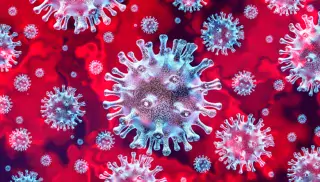
Researchers worldwide are trying to develop a vaccine and antiviral treatments against the new corona virus spreading in China. At Karolinska Institutet, virus researchers Ali Mirazimi and Matti Sällberg are working to develop a prototype vaccine against the virus. But vaccine development takes time, and it will likely take at least six to nine months before an application for clinical studies can be filed and another two to three years before a vaccine could be ready for the public.
News
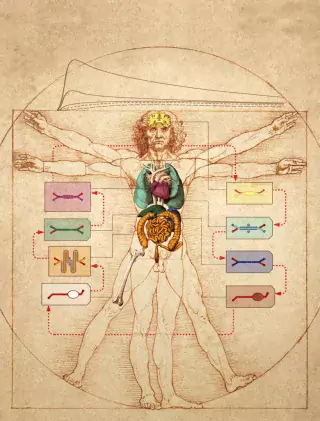
A multiple organ-on-chip platform developed by researchers at KTH Royal Institute of Technology, Karolinska Institutet and Harvard University could drastically accelerate drug testing. The technology, described today in Nature Biomedical Engineering, provides accurate predictions of drug effects prior to clinical testing.
News
After years of research on cell surface receptors called Frizzleds, researchers at Karolinska Institutet provide the proof-of-principle that these receptors are druggable by small molecules. The results, which are published in the scientific journal Nature Communications, open for new strategies to treat different types of cancer.
News

A common and inexpensive drug may be used to counteract treatment resistance in patients with acute myeloid leukemia (AML), one of the most common forms of blood cancer. This is the conclusion of a study in mice and human blood cells performed at Karolinska Institutet and SciLifeLab and published in the medical journal EMBO Molecular Medicine. The researchers will now launch a clinical study to test the new combination treatment in patients.
News

Children who have received radiotherapy for a brain tumour can develop cognitive problems later in life. In their studies on mice, researchers at Karolinska Institutet have now shown that the drug lithium can help to reverse the damage caused long after it has occurred. The study is published in the journal Molecular Psychiatry and the researchers are now planning to test the treatment in clinical trials.
News
Researchers at Karolinska Institutet have identified 10 tumour-specific potential drug targets for the brain tumour glioblastoma. The results are presented in the scientific journal Cell Reports.
News
In a new register-based study, Swedish and Danish researchers show that common drugs for Inflammatory Bowel Disease (IBD), so called TNF-α inhibitors, are not linked to increased risk of serious infections in children. Previous studies have shown an increased risk in corresponding adult patients. The results are published in The Lancet Gastroenterology & Hepatology.
News
The new type of drugs for type 2 diabetes, the so-called SGLT2 inhibitors, are associated with a reduced risk of heart failure and death as well as of major cardiovascular events, a major Scandinavian registry study led from Karolinska Institutet reports in The BMJ.
News
Radiation therapy against cancer can increase the risk of cardiovascular disease much later in life, as the radiation causes chronic inflammation of the exposed blood vessels. In a new study published in the European Heart Journal, researchers from Karolinska Institutet in Sweden have shown that these inflammations can be treated with IL-1 inhibitors.
News
A study published in Science Translational Medicine shows that small molecules that specifically inhibit an important selenium-containing enzyme may be useful in combating cancer. When researchers at Karolinska Institutet treated cancer in mice using these molecules, they observed rapid tumoricidal effects. Researchers now hope that this new principle for cancer treatment will eventually be developed for use in humans.
News

The failure of drugs such as SSRIs, used to treat depression, can be a result of genetic variations in patients. Variations within the gene that encodes the CYP2C19 enzyme results in extreme differences in the levels of escitalopram achieved in patients, according to a new study published in The American Journal of Psychiatry. Prescribing the dose of escitalopram based on a patient’s specific genetic constitution would greatly improve therapeutic outcomes.
News
The dynamics among certain so-called G protein-coupled receptors, of vital importance for the function of cells in the body, are different than previously believed. This has been reported by researchers from Karolinska Institutet in the journal Nature Communications. As these types of receptors are the target for many different medicines, the new finding opens the doors to completely new opportunities within pharmacology and pharmaceutical development.
News




